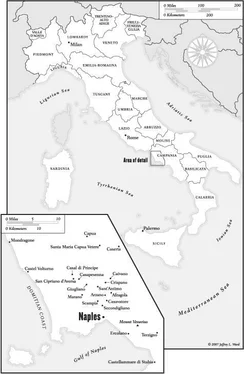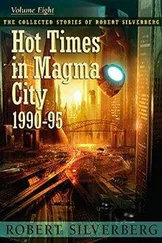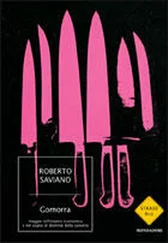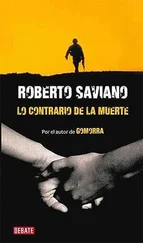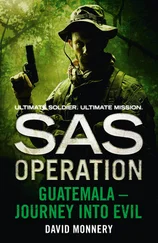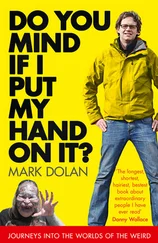Roberto Saviano - Gomorrah - A Personal Journey into the Violent International Empire of Naples’ Organized Crime System
Здесь есть возможность читать онлайн «Roberto Saviano - Gomorrah - A Personal Journey into the Violent International Empire of Naples’ Organized Crime System» весь текст электронной книги совершенно бесплатно (целиком полную версию без сокращений). В некоторых случаях можно слушать аудио, скачать через торрент в формате fb2 и присутствует краткое содержание. Жанр: Старинная литература, на английском языке. Описание произведения, (предисловие) а так же отзывы посетителей доступны на портале библиотеки ЛибКат.
- Название:Gomorrah: A Personal Journey into the Violent International Empire of Naples’ Organized Crime System
- Автор:
- Жанр:
- Год:неизвестен
- ISBN:нет данных
- Рейтинг книги:5 / 5. Голосов: 1
-
Избранное:Добавить в избранное
- Отзывы:
-
Ваша оценка:
- 100
- 1
- 2
- 3
- 4
- 5
Gomorrah: A Personal Journey into the Violent International Empire of Naples’ Organized Crime System: краткое содержание, описание и аннотация
Предлагаем к чтению аннотацию, описание, краткое содержание или предисловие (зависит от того, что написал сам автор книги «Gomorrah: A Personal Journey into the Violent International Empire of Naples’ Organized Crime System»). Если вы не нашли необходимую информацию о книге — напишите в комментариях, мы постараемся отыскать её.
Gomorrah: A Personal Journey into the Violent International Empire of Naples’ Organized Crime System — читать онлайн бесплатно полную книгу (весь текст) целиком
Ниже представлен текст книги, разбитый по страницам. Система сохранения места последней прочитанной страницы, позволяет с удобством читать онлайн бесплатно книгу «Gomorrah: A Personal Journey into the Violent International Empire of Naples’ Organized Crime System», без необходимости каждый раз заново искать на чём Вы остановились. Поставьте закладку, и сможете в любой момент перейти на страницу, на которой закончили чтение.
Интервал:
Закладка:
After Augusto turned state’s witness, the new boss, Luigi Fragnoli, a La Torre loyalist, started having problems with some affiliates such as Giuseppe Mancone, also known as Rambo. Rambo bore a vague resemblance to Stallone, his body pumped up from weight lifting. The drug market he’d established was gaining in importance; soon he would be able to kick out the old bosses, whose reputation had been shattered by the pentiti. According to the anti-Mafia prosecutor, the Mondragone clans asked the Birra family from Ercolano to hire the killers. Two hit men arrived in Mondragone to take out Rambo in August 2003. They showed up on one of those big motor scooters—not terribly maneuverable, but so menacing they couldn’t resist using it for the ambush. They’d never set foot in Mondragone, but didn’t have any problems spotting their victim; he was at the Roxy Bar, as always. The motorbike came to a halt. One of them got off, walked decisively up to Rambo, emptied an entire clip into him, then returned to the bike.
“Everything all set? You did it?”
“Yeah, I did it, go go go.”
There was a group of kids near the bar, deciding what to do for the August 15 ferragosto holiday. As soon as they saw the guys from Ercolano, they realized what was going on; there was no mistaking the sound of an automatic for fireworks. They all lay down, face to the ground, fearing to be targeted as potential witnesses. Only one person didn’t look away. One person stared at the killer without lowering her eyes, without pressing her chest to the tarmac or covering her face with her hands. A thirty-five-year-old schoolteacher. The woman testified, made identifications, reported the killing. Among the many reasons for keeping quiet, for pretending nothing happened, for going home and living as before, are the fear of intimidation and, even more, futility—one killer arrested was just one out of many. And yet among the slag heap of reasons to keep quiet, the Mondragone schoolteacher found one motivation to speak: the truth. A truth that seems natural, like an everyday, habitual gesture, an obvious and necessary act, like breathing. She testified without asking anything in return. She didn’t expect a stipend or police protection, didn’t set a price on her word. She told what she’d seen, described the killer’s face, his angular features and thick eyebrows. After the shooting, the motor scooter sped off, but it made several wrong turns, heading down dead-end streets and having to turn around. They seemed more like schizophrenic tourists than killers. In the trial that resulted from the schoolteacher’s testimony, Salvatore Cefariello, the twenty-four-year-old killer considered to be in the pay of the Ercolano clans, was condemned for life. The judge who took the teacher’s testimony called her “a rose in the desert,” blooming in a land where truth is always the powerful people’s version of things, where it is almost never stated, a rare commodity to be bartered for a profit.
And yet her confession made her life difficult. It was as if she had snagged a thread, and her entire existence unraveled along with her courageous testimony. She had been engaged, but her fiancé left her. She lost her job and was transferred to a protected location where she received a small state stipend, just enough to survive. Some family members took their distance, and a profound loneliness descended upon her. A loneliness that explodes violently in her daily life when she wants to dance and has no partner, when cell phones are never answered, when friends stop calling and eventually disappear. It wasn’t testifying in itself that generated such fear, or her identifying a killer that caused such a scandal. The logic of omertà isn’t so simple. What made the young teacher’s gesture scandalous is that she considered being able to testify something natural, instinctive, and vital. In a land where truth is considered to be what gets you something and lying what makes you lose, living as if you actually believe truth can exist is incomprehensible. So the people around you feel uncomfortable, undressed by the gaze of one who has renounced the rules of life itself, which they have fully accepted. And accepted without feeling ashamed, because in the end that’s just how things are and have always been; you can’t change it all on your own, and so it’s better to save your energy, stay on track, and live the way you’re supposed to live.
In Aberdeen my eyes were confronted with the material success of Italian entrepreneurship. It’s odd to see the distant branches if you know the roots. I don’t know how to describe it, but seeing the restaurants, offices, insurance firms, and buildings was like being grabbed by the ankles, turned upside down, and flung about until everything—house keys and small change—fell out of my pockets and mouth, even my soul, if that can be commercialized. The cash flows radiate in all directions, sucking energy from the center. Knowing this is not the same as seeing it. I went with Matteo to a job interview. They hired him, obviously. He wanted me to stay in Aberdeen as well.
“Here all you have to do is be yourself, Robbe’.”
Matteo had to be from Campania to have that aura, to have his résumé, degree, and desire to work be appreciated. The very origins that in Scotland allowed him to become a full-fledged citizen classified him in Italy as little more than a waste of a man, devoid of protection and importance, defeated right from the start because he hadn’t set his life on the proper track. Matteo suddenly burst into a happiness never seen before. The more his spirits soared, the more I was weighed down by a bitter melancholy. I’ve never been able to take enough distance from the place I was born and the behavior of people I hated; I’ve never felt myself truly different from the fierce dynamics that crush lives and longing. Being born in certain places means you’re like a hunting dog, born with the smell of the hare already in your nose. You chase after the hare even against your own will, even if, once you catch it, you snap your jaws and let it go. I was able to follow the routes, streets, and paths with unconscious obsession, with a cursed ability to understand completely the conquered territories.
I wanted to get out of Scotland, go away and never set foot in that country again. I left as soon as I could. I had trouble sleeping on the plane; the lack of air and the darkness outside my window grabbed my throat, as if I were wearing a tie that was too tight, pressing against my Adam’s apple. Perhaps my claustrophobia wasn’t caused by a tiny seat on a minuscule plane, or by the darkness outside, but by the sensation of being crushed in a reality like a chicken coop crammed full of starving birds, ready to eat and be eaten. As if everything were just one territory with one dimension and one syntax, understood everywhere. A feeling of no exit, of being constrained to join the big battle or not exist. I returned to Italy thinking about the tracks on which high-speed trains travel; the capital flowing into the great European economy rushes in one direction, while in the other— southbound—comes everything that would be infectious elsewhere, entering and exiting through the forced nets of the open and flexible economy, creating—in the continuous cycle of transformation— wealth elsewhere, but without ever triggering any form of development in the lands where the metamorphosis began.
Rubbish has swollen the belly of southern Italy, stretching it as if it were pregnant, but the fetus never grows; it aborts money, then immediately becomes pregnant again, only to abort and conceive again, to the point where the body is ruined, the arteries are clogged, the lungs filled, the synapses destroyed. Over and over and over again.
LAND OF FIRES
Читать дальшеИнтервал:
Закладка:
Похожие книги на «Gomorrah: A Personal Journey into the Violent International Empire of Naples’ Organized Crime System»
Представляем Вашему вниманию похожие книги на «Gomorrah: A Personal Journey into the Violent International Empire of Naples’ Organized Crime System» списком для выбора. Мы отобрали схожую по названию и смыслу литературу в надежде предоставить читателям больше вариантов отыскать новые, интересные, ещё непрочитанные произведения.
Обсуждение, отзывы о книге «Gomorrah: A Personal Journey into the Violent International Empire of Naples’ Organized Crime System» и просто собственные мнения читателей. Оставьте ваши комментарии, напишите, что Вы думаете о произведении, его смысле или главных героях. Укажите что конкретно понравилось, а что нет, и почему Вы так считаете.
